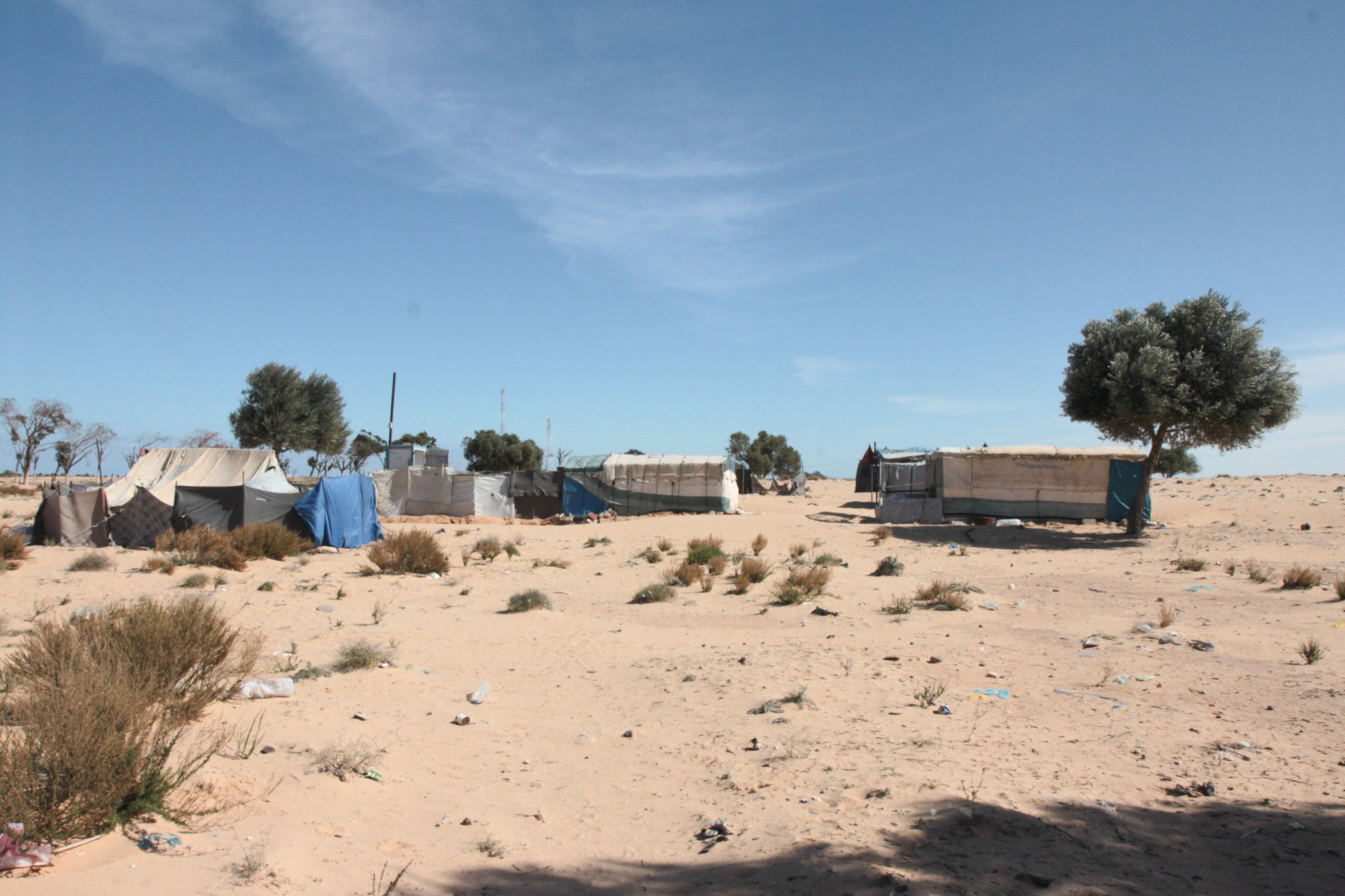
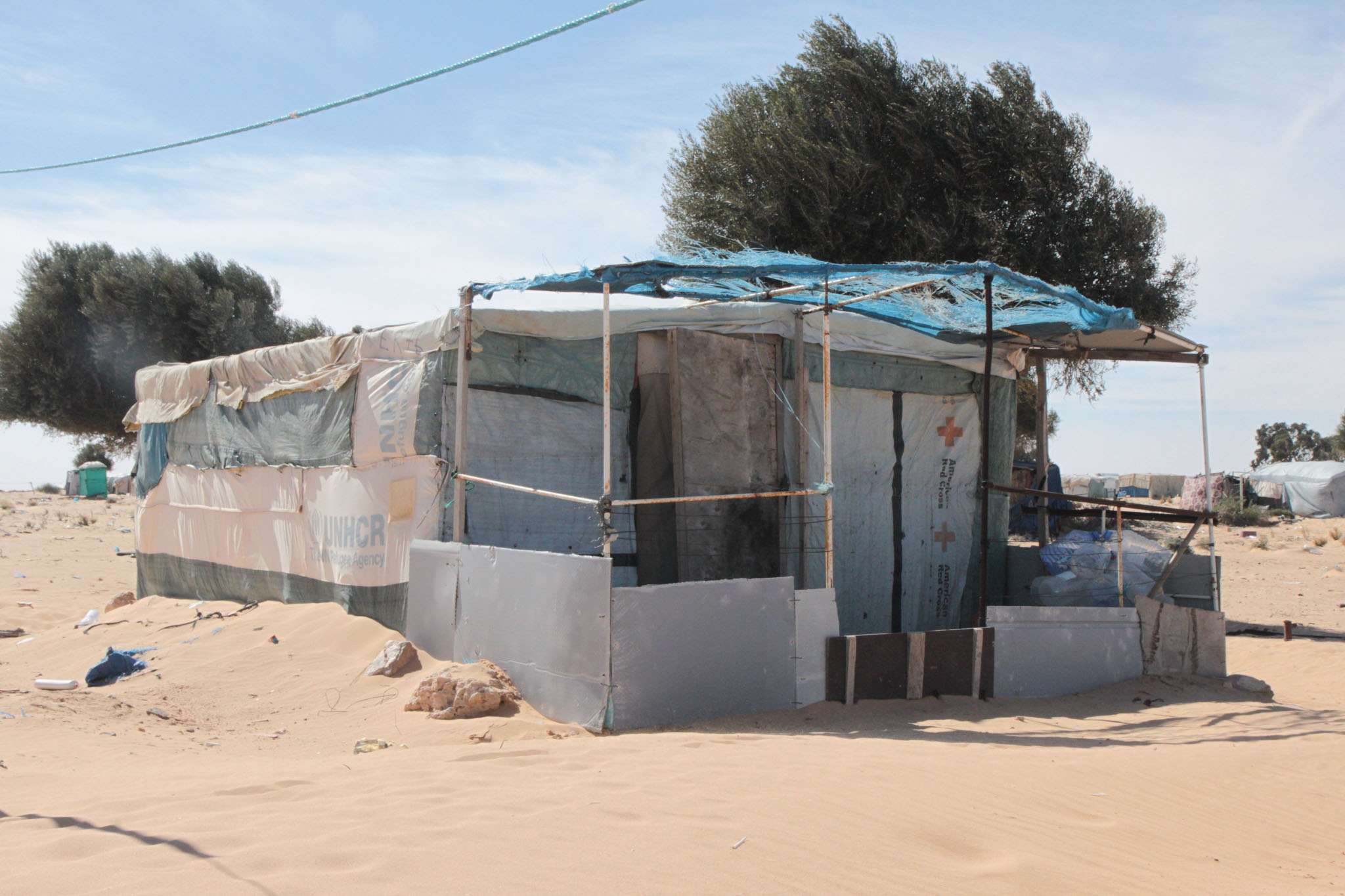
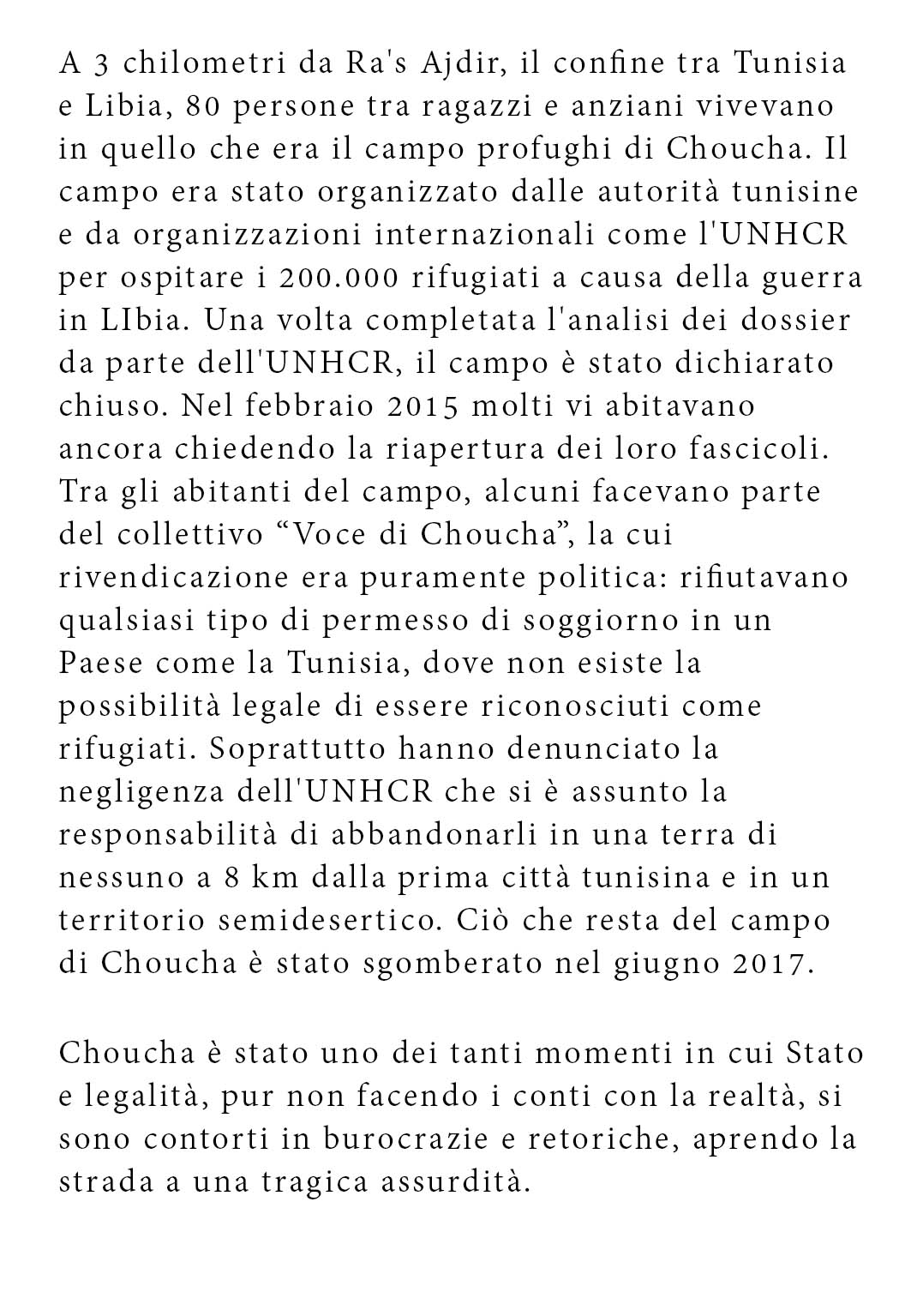
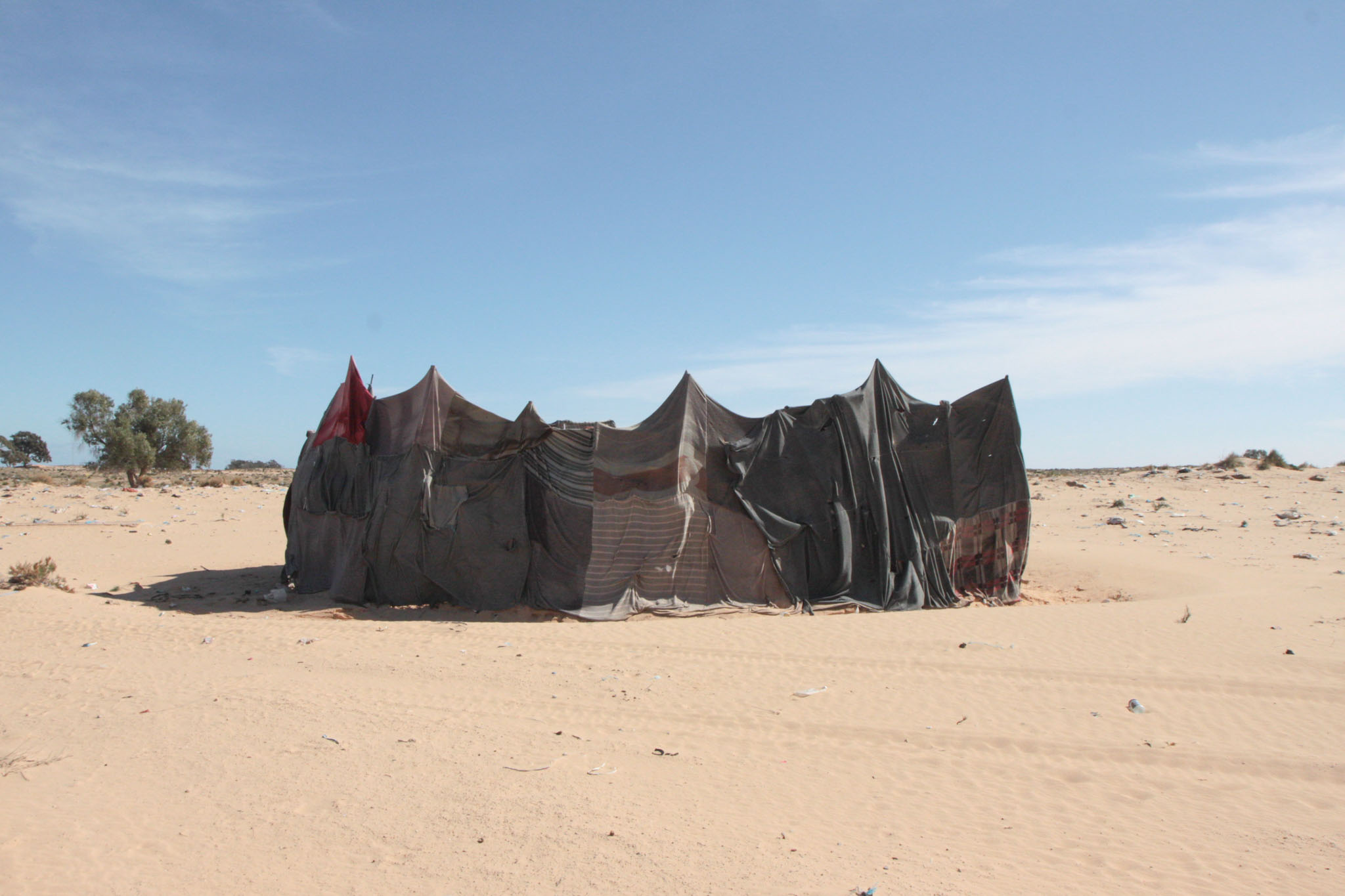


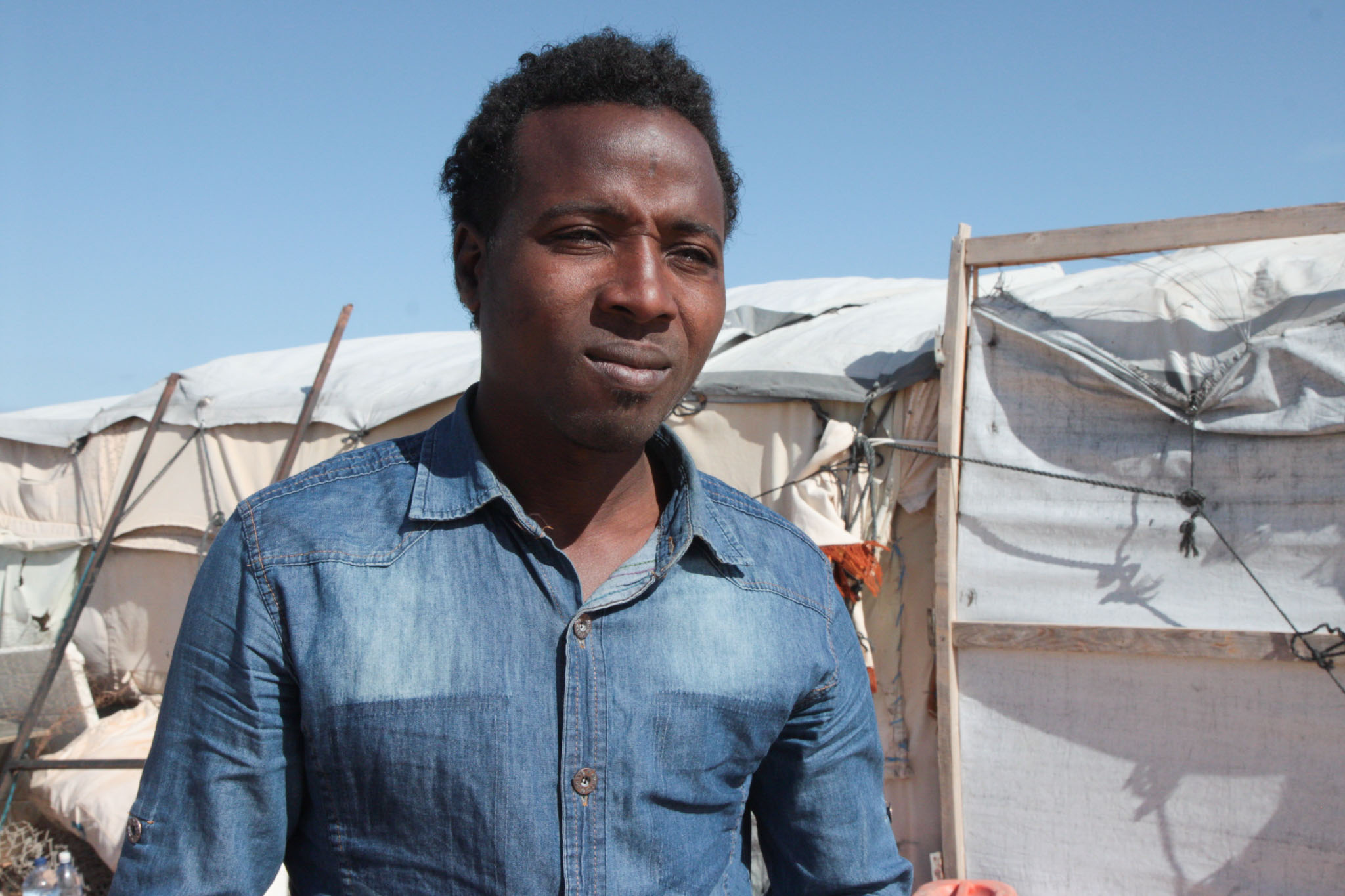
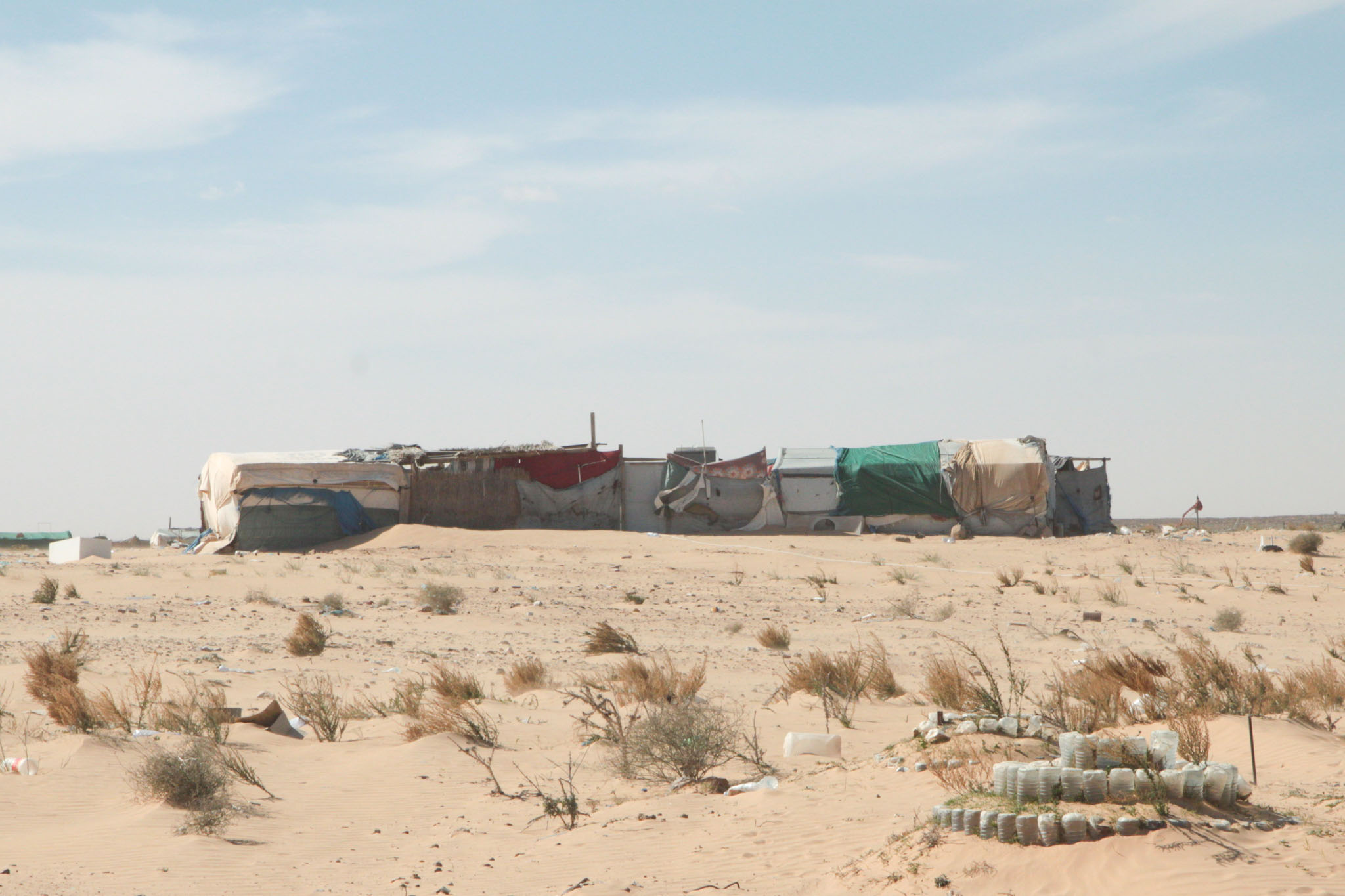
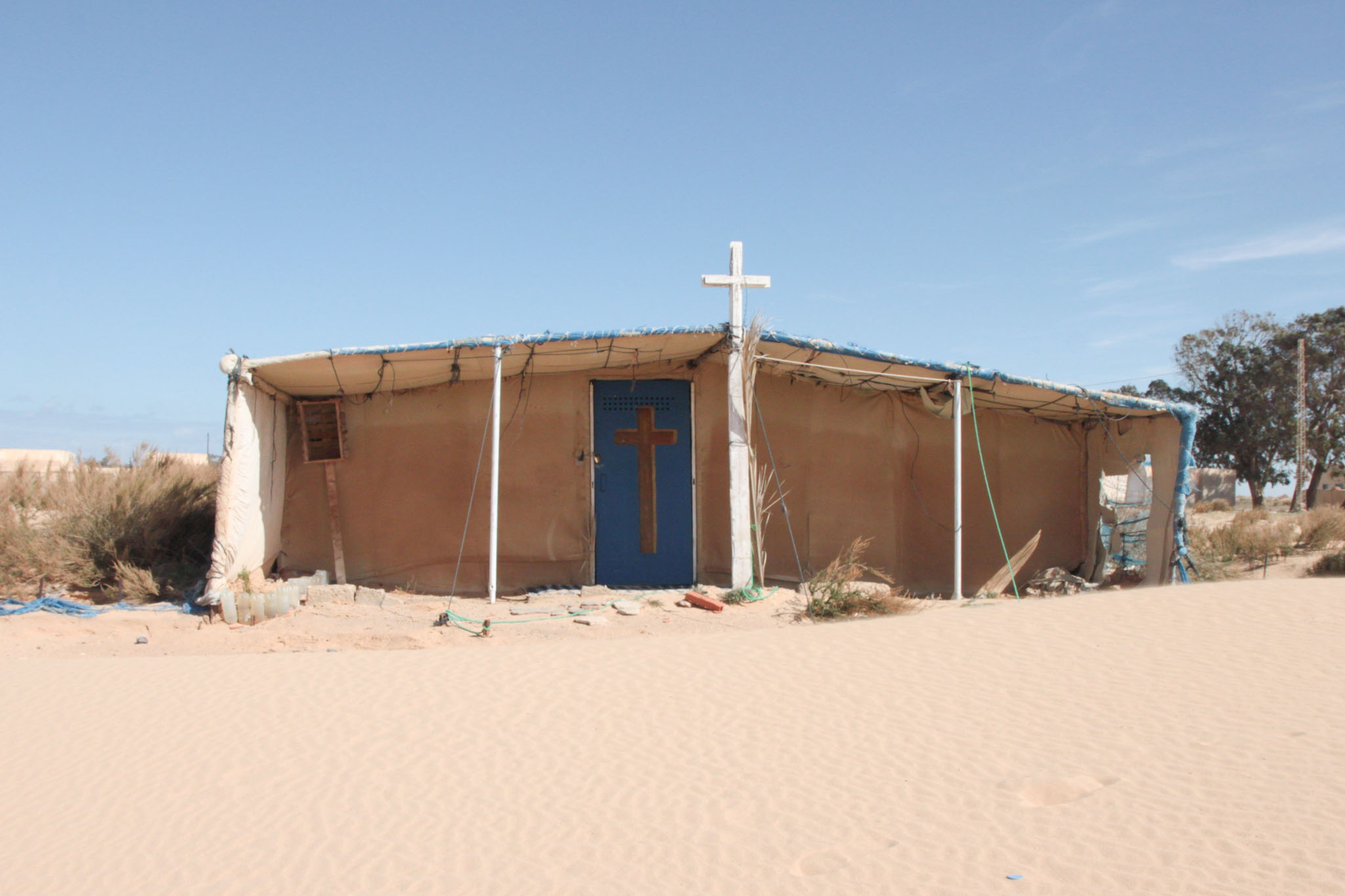
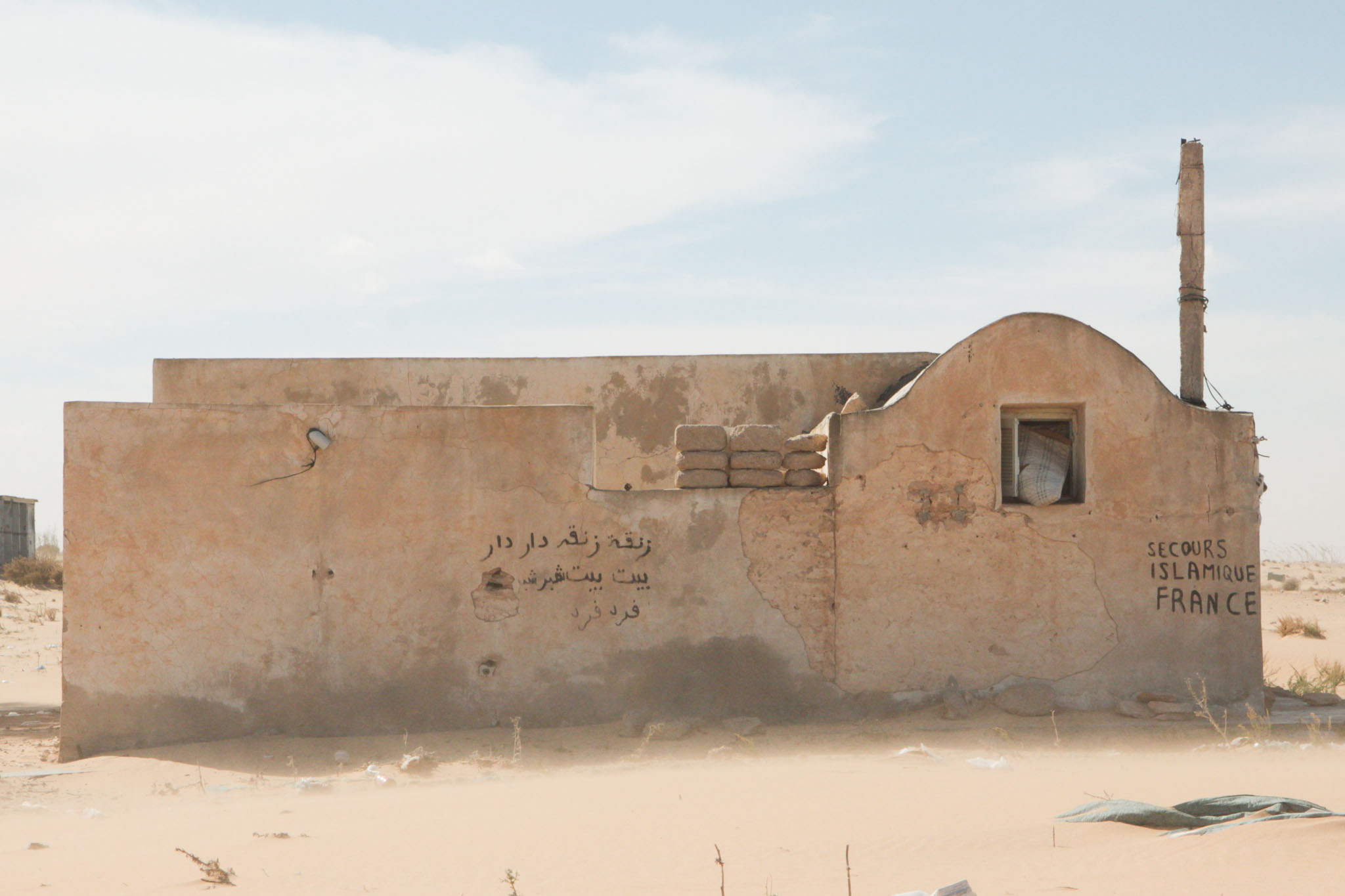
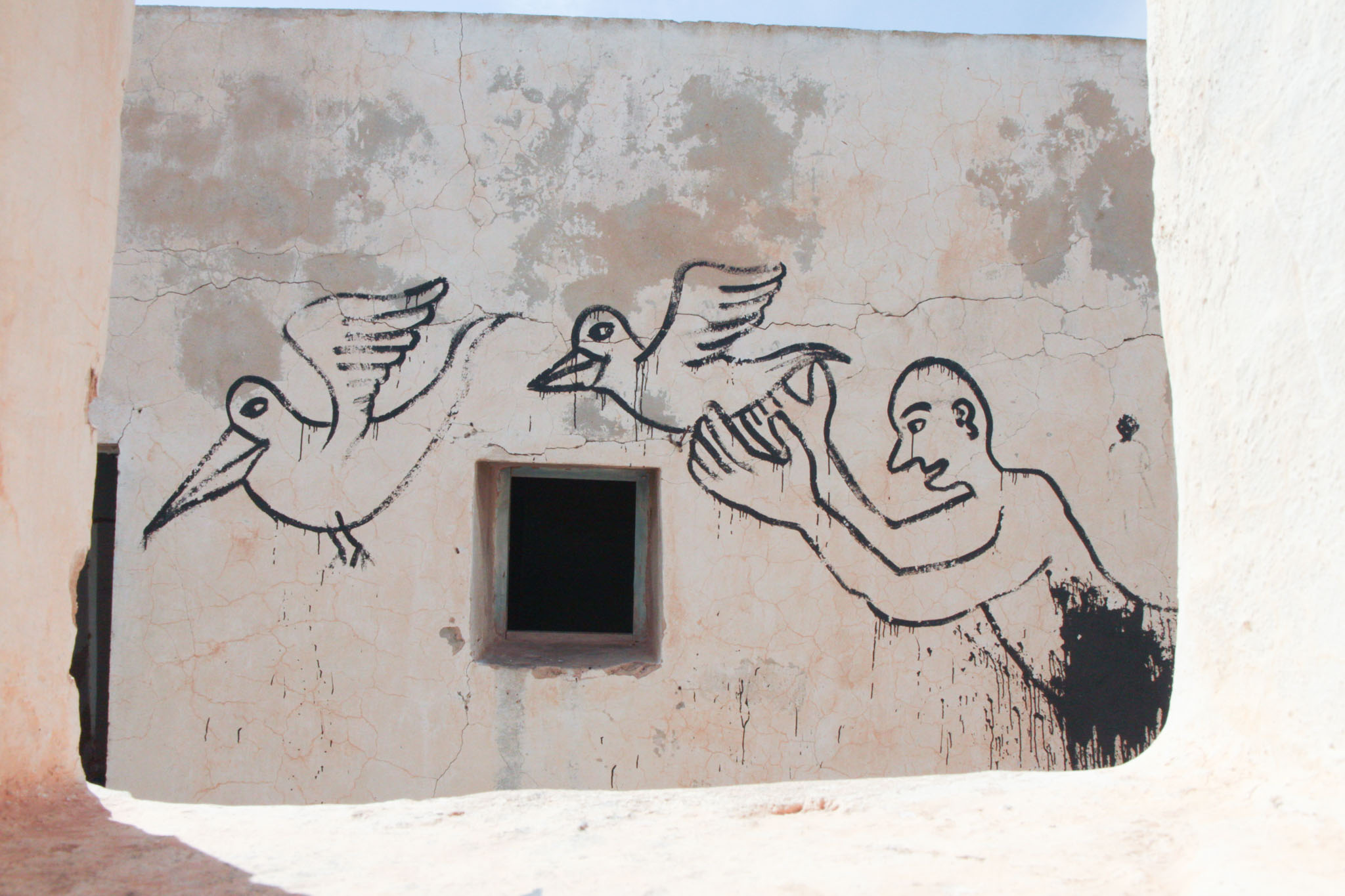
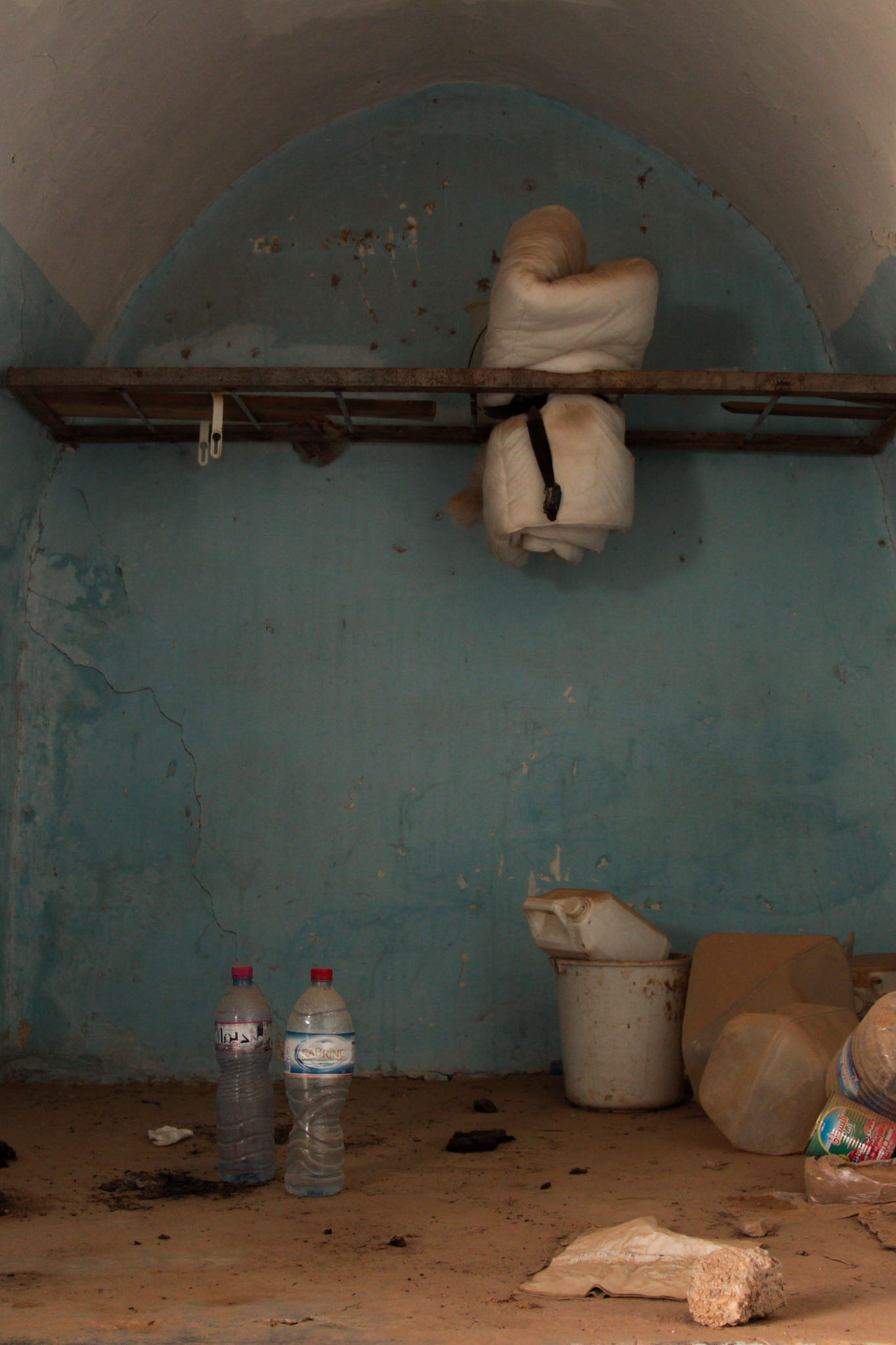

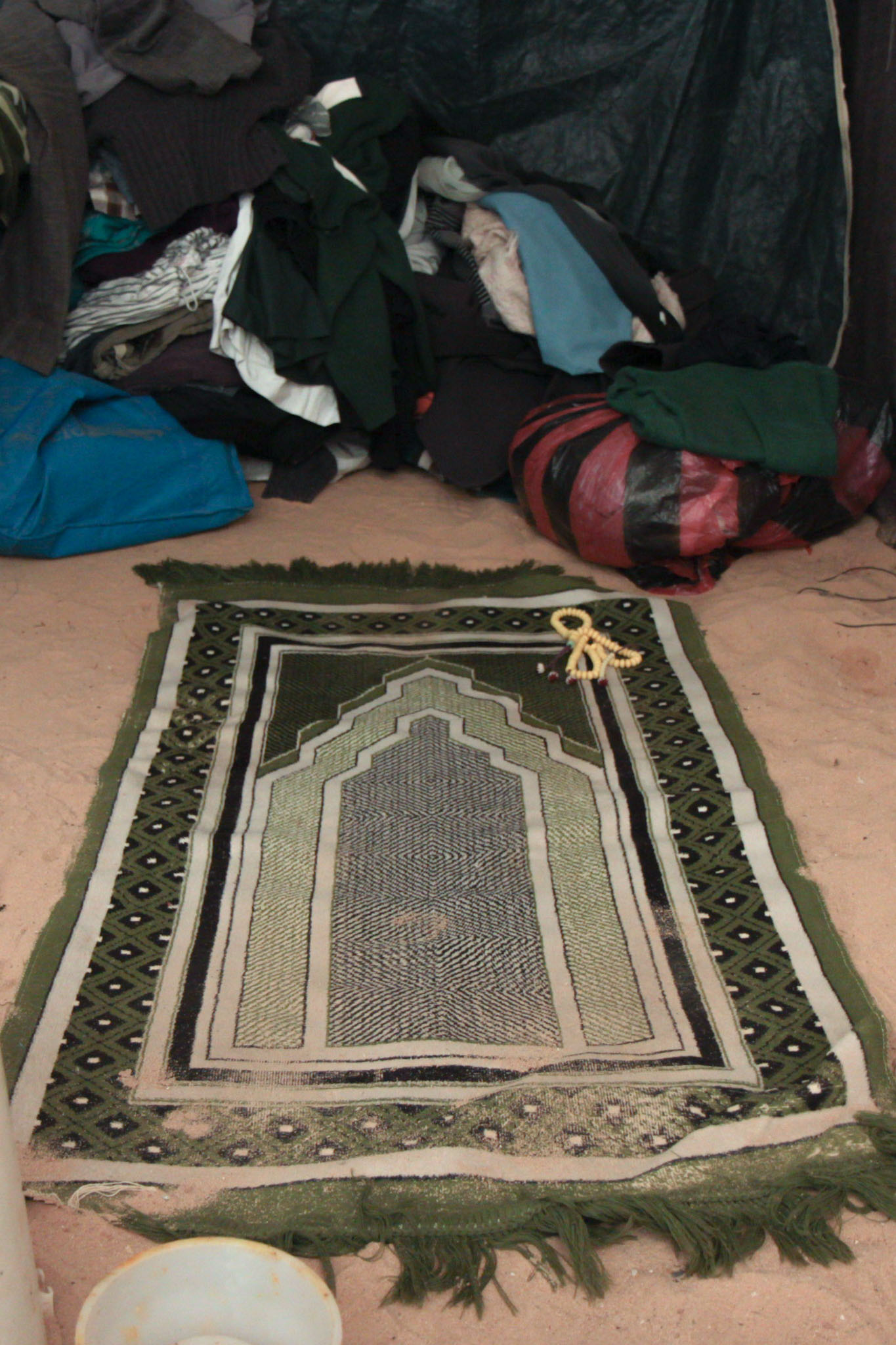
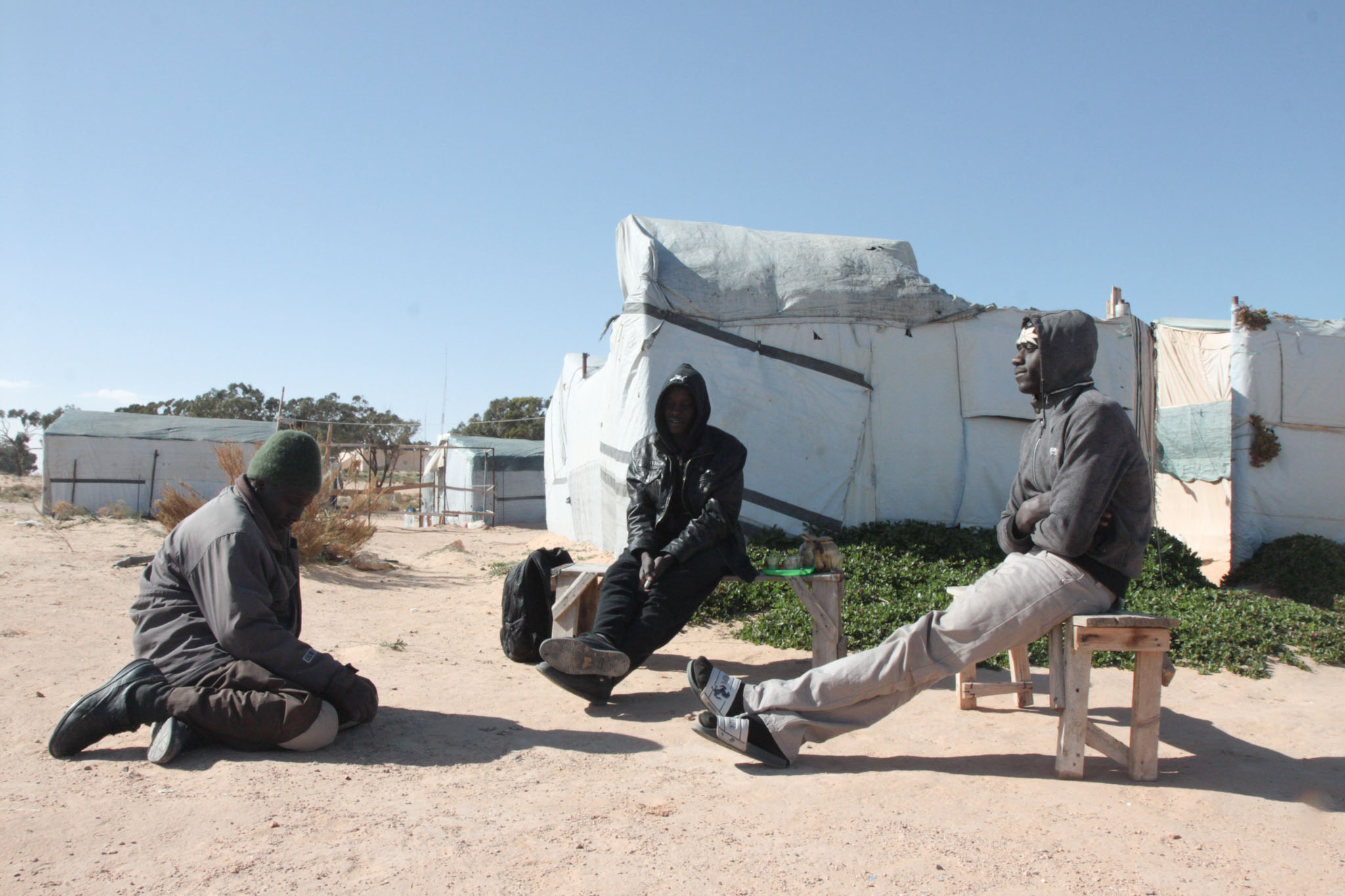

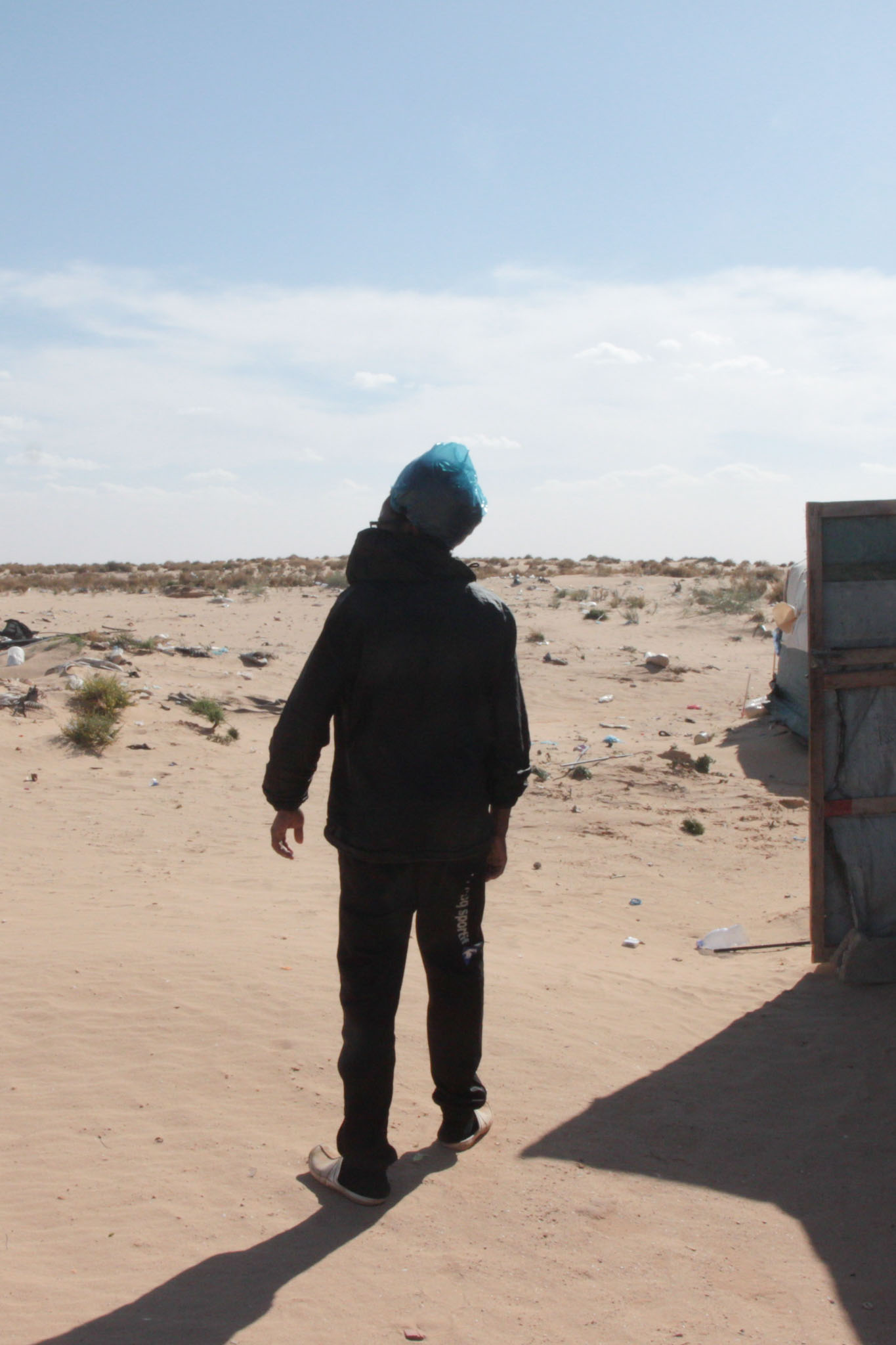

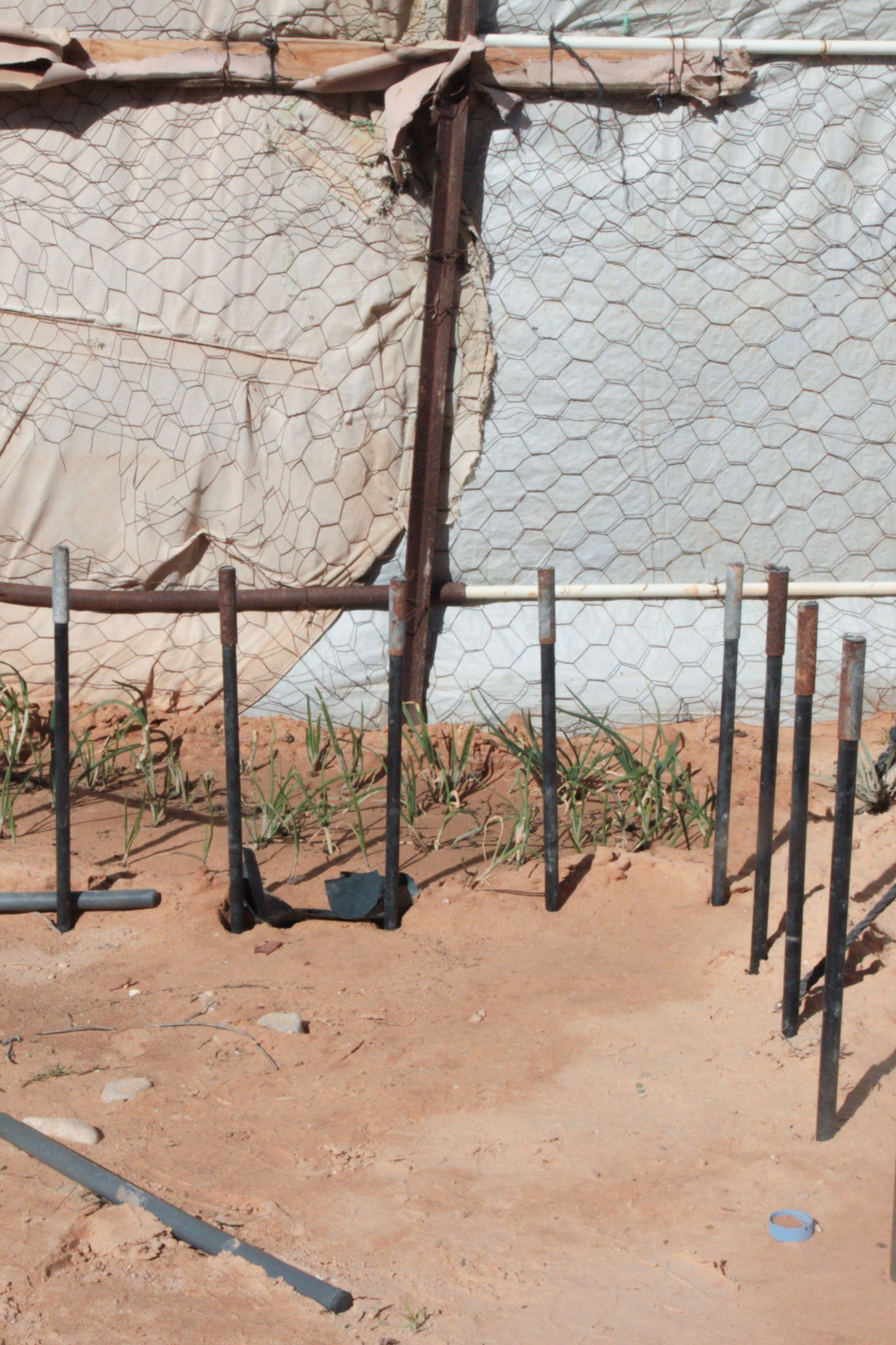
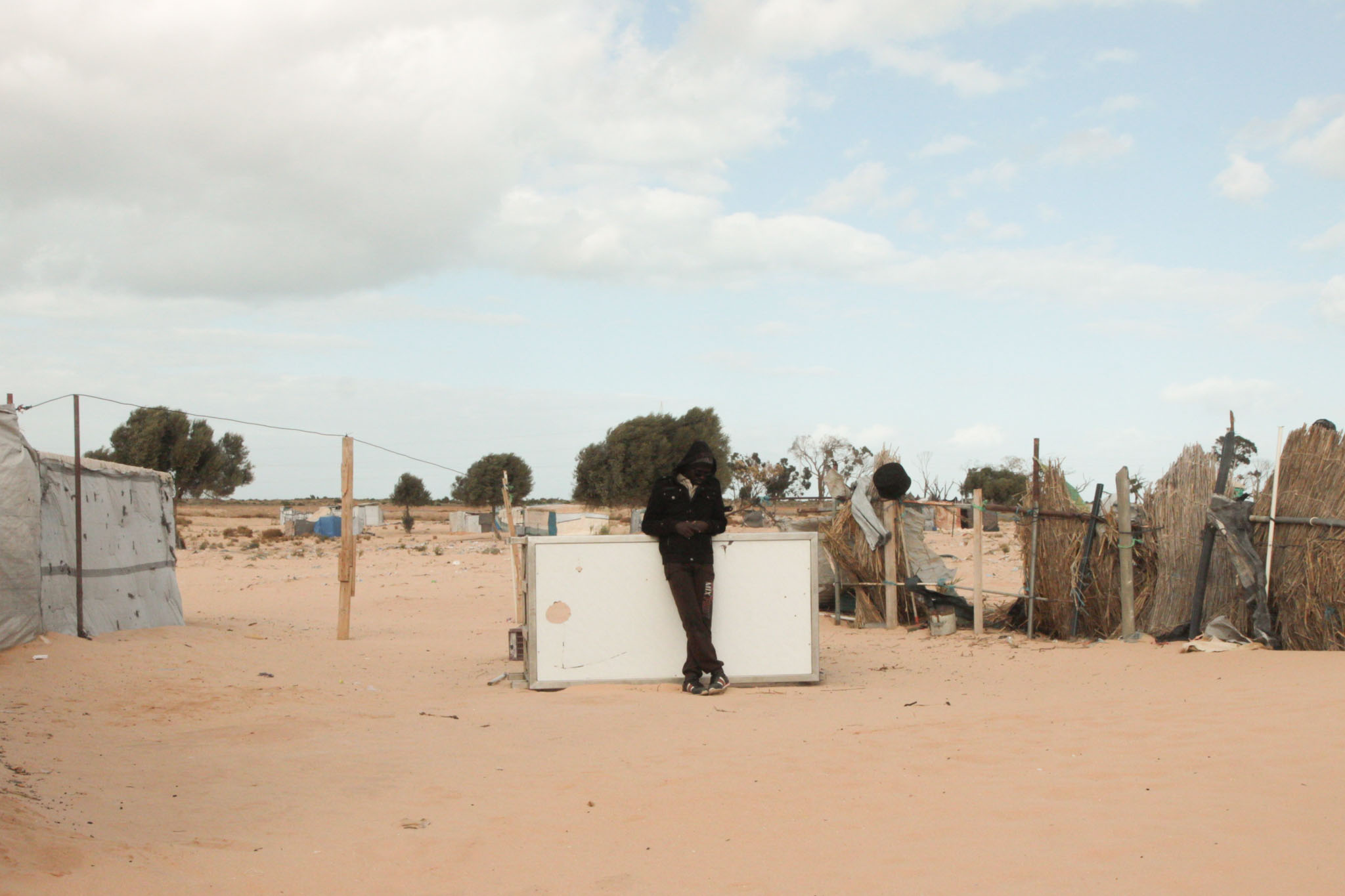
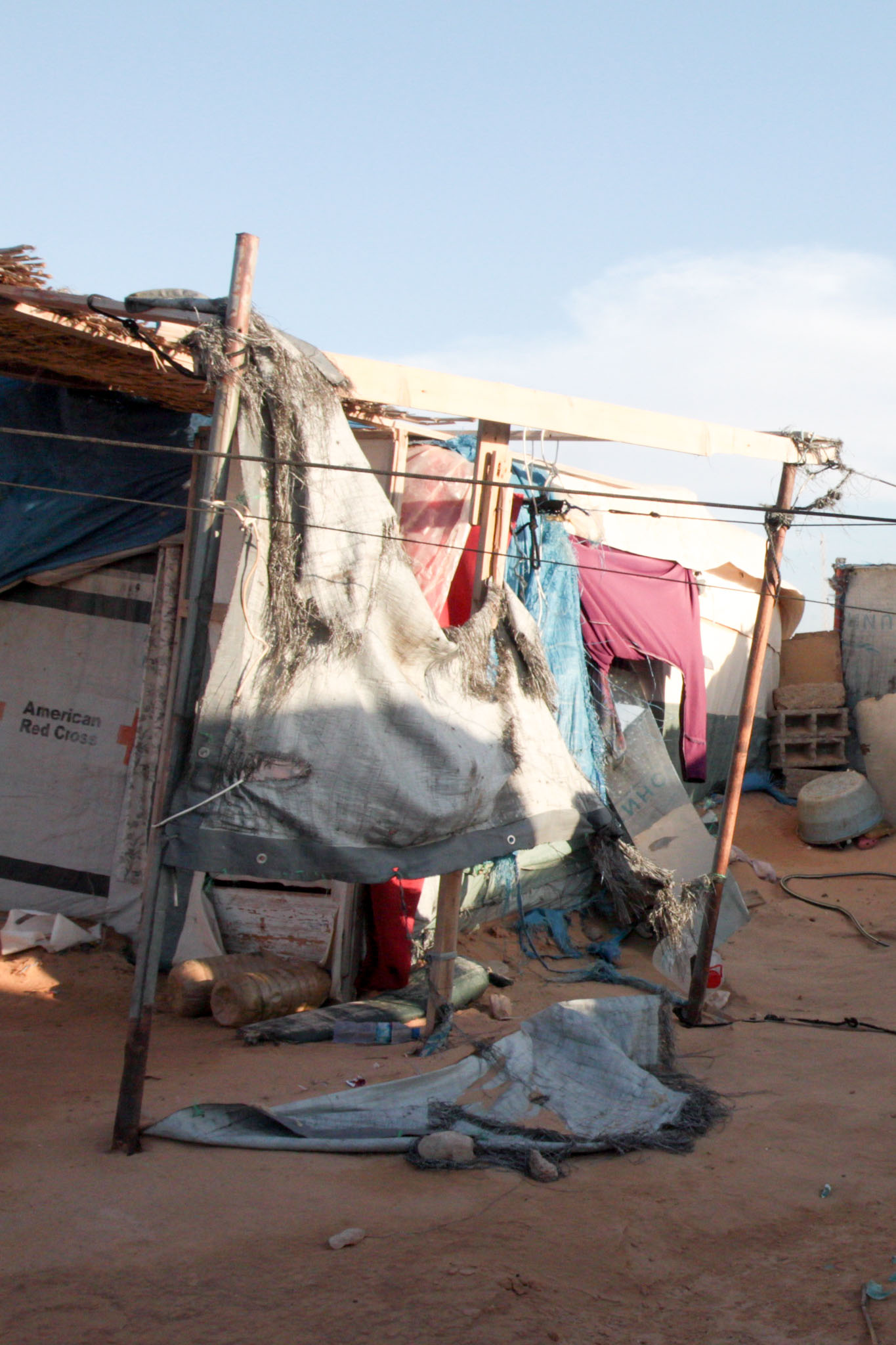
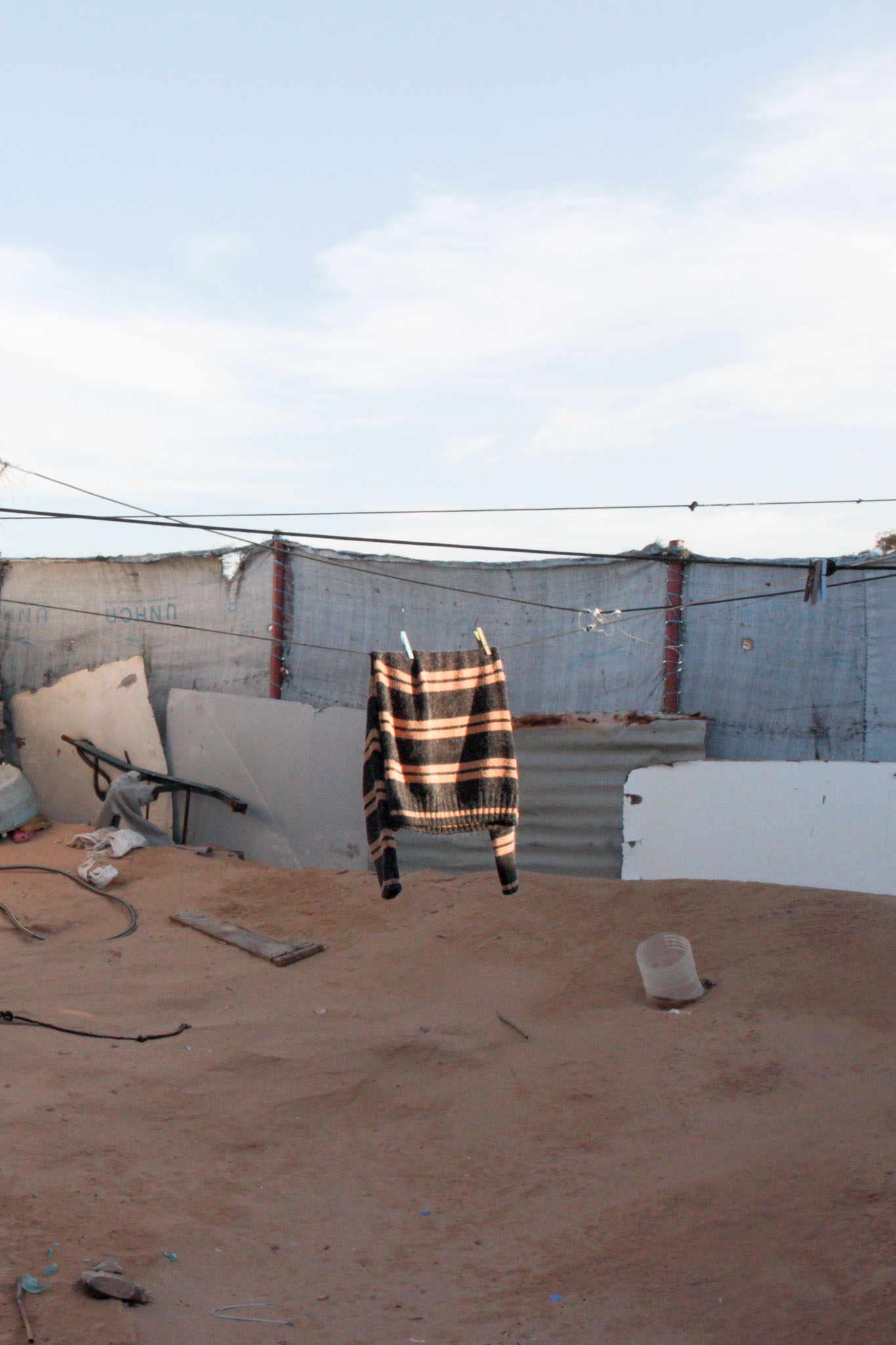
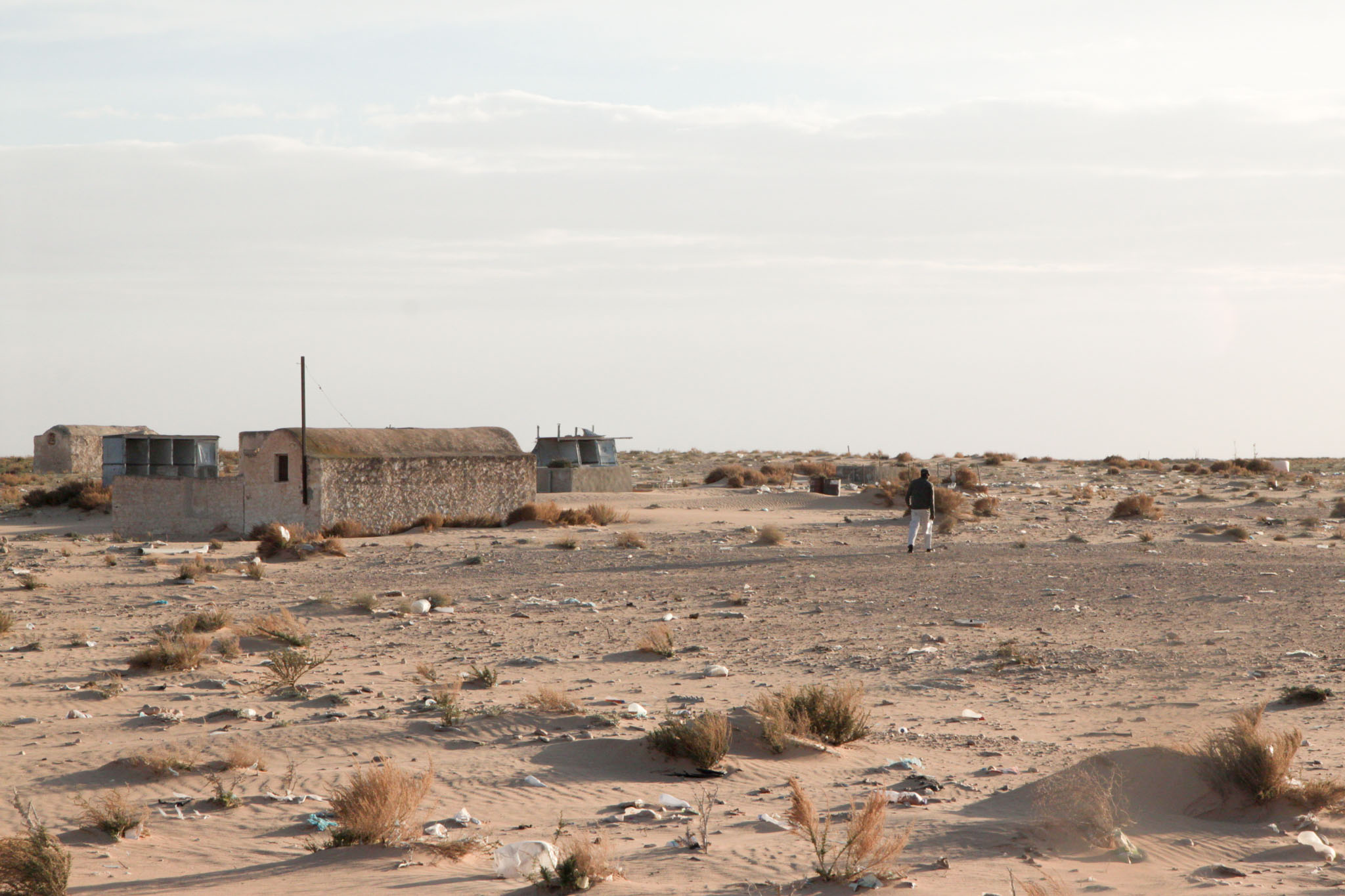
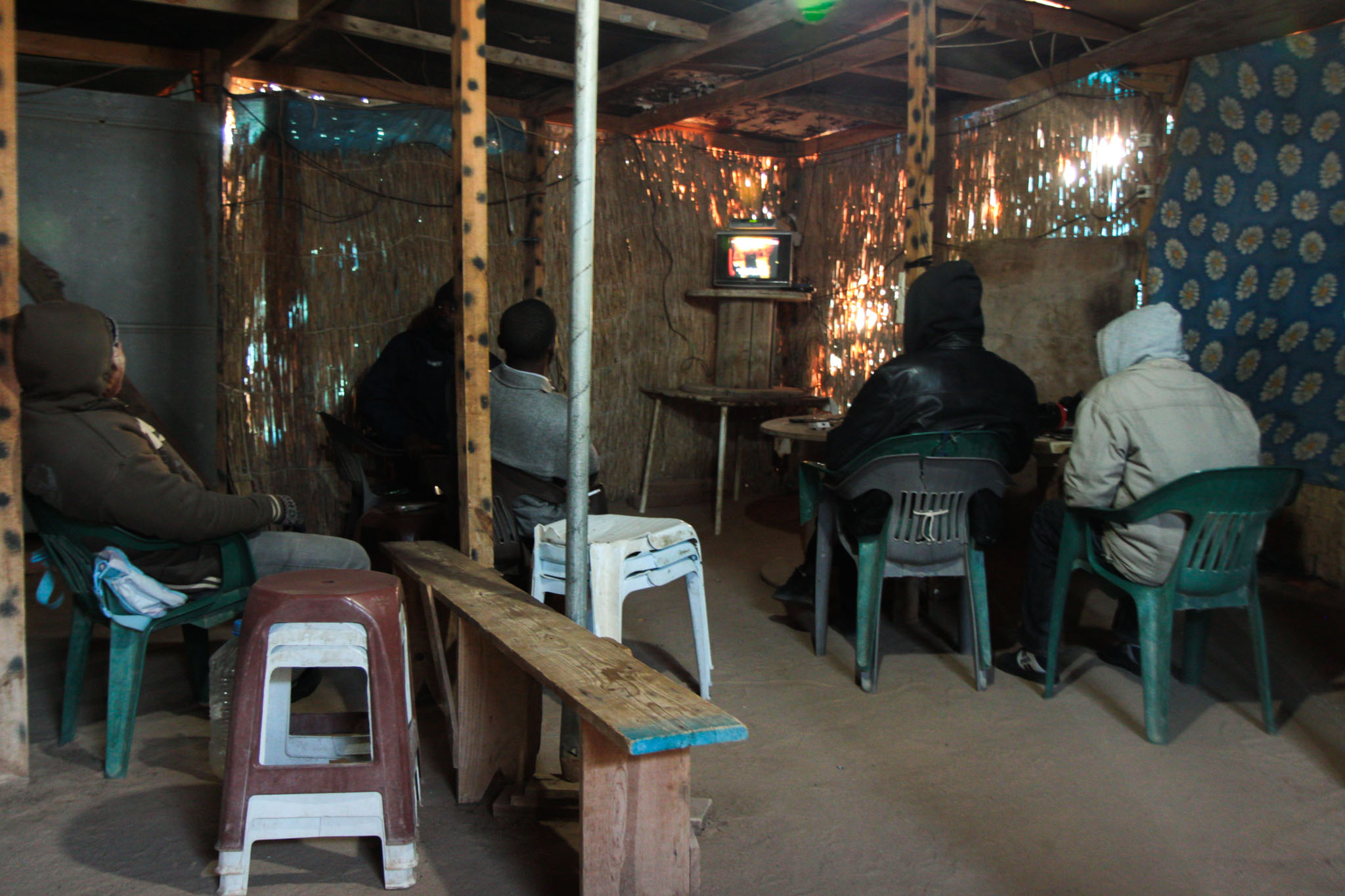
Reportage, Choucha refugee camp 2014
[EN]
At 3 kilometers from Ra's Ajdir, the border between Tunisia and Libya, 80 people between boys and the elderly lived from what was the Choucha refugee camp. The camp was organized by the Tunisian authorities and international organizations such as the UNHCR to accommodate the 200,000 refugees due to the war in LIbia. Once the analysis of the files by the UNHCR has been completed, the field has been declared closed. In February 2015 many still lived there requesting the reopening of their files. Among the inhabitants of the camp, some were part of the collective "Voice of Choucha" whose claim was purely political: they refused any kind of residence permit in a country like Tunisia where there is no legal possibility of being recognized as a refugee. Above all they denounced the negligence of the UNHCR in having taken responsibility and having in fact abandoned them in a no-man's land 8 km from the first Tunisian city and in a semi-desert territory. What remains of the Choucha camp was evicted in June 2017.
Choucha was one of the many moments in which State and legality, while not dealing with reality, were writhing in bureaucracies and rhetoric, opening the way to a tragic absurdity.
[FR]
À 3 kilomètres de Ra's Ajdir, frontière entre la Tunisie et la Libye, 80 personnes entre garçons et personnes âgées vivaient de ce qui était le camp de réfugiés de Choucha. Le camp a été organisé par les autorités tunisiennes et des organisations internationales telles que le HCR pour accueillir les 200 000 réfugiés en raison de la guerre en Libye. Une fois l'analyse des dossiers effectuée par le HCR, le champ a été déclaré fermé. En février 2015, beaucoup y vivaient encore et demandaient la réouverture de leurs dossiers. Parmi les habitants du camp, certains faisaient partie du collectif "Voice of Choucha" dont la revendication était purement politique: ils ont refusé tout type de permis de séjour dans un pays comme la Tunisie où il n’existait aucune possibilité légale d’être reconnu réfugié. Surtout, ils ont dénoncé la négligence du HCR d’avoir pris ses responsabilités et de les avoir abandonnés dans un no man's land à 8 km de la première ville tunisienne et dans un territoire semi-désertique. Les restes du camp de Choucha ont été expulsés en juin 2017.
Choucha a été l’un des nombreux moments où État et légalité, bien que ne faisant pas face à la réalité, se débattaient dans la bureaucratie et la rhétorique, ouvrant la voie à une absurdité tragique.